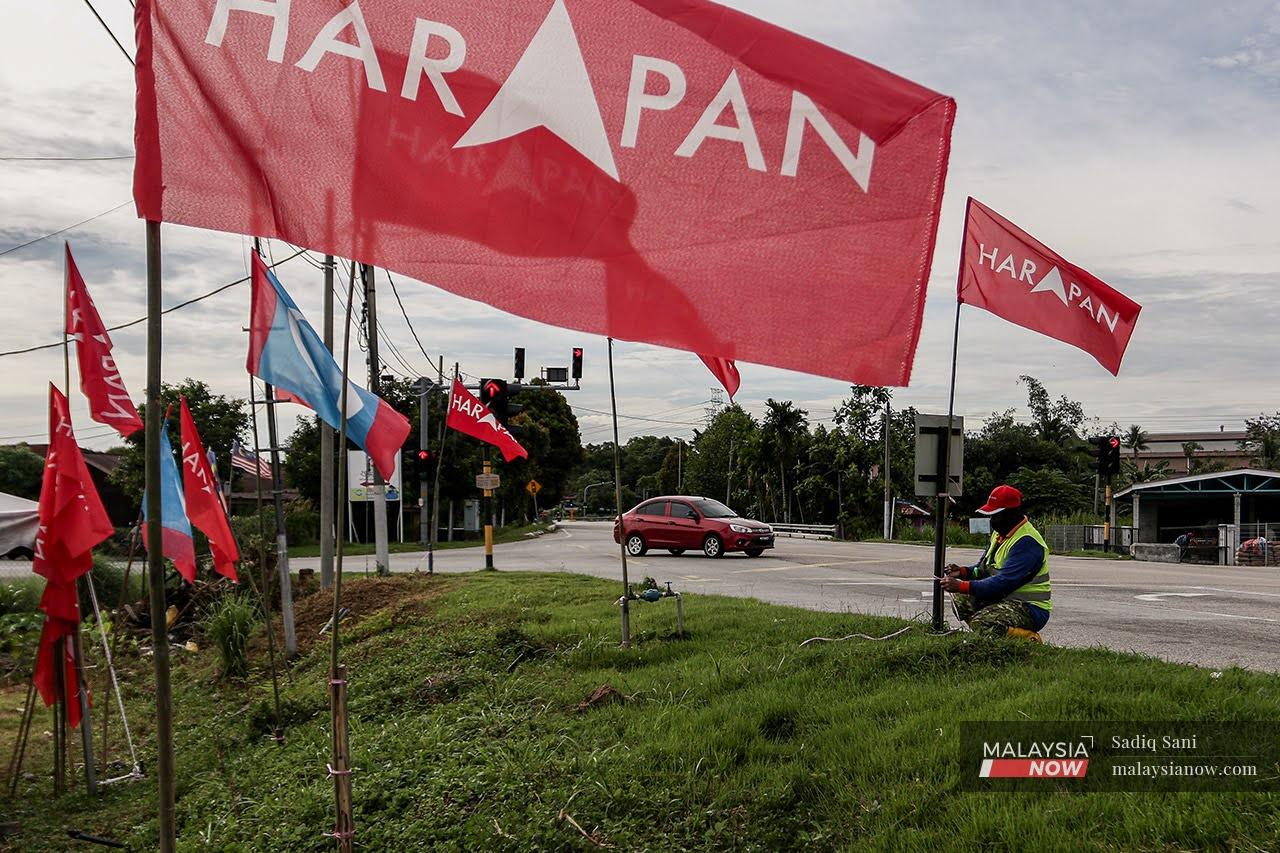PKR, still relevant to PH?
The question comes hard on the heels of its latest electoral failure and doubts over its president Anwar Ibrahim.
Just In
PKR’s lacklustre performance at the four state-level polls since the 14th general election in 2018 may eventually force the remaining Pakatan Harapan (PH) component parties to look for a new comrade in arms to replace it, analysts say.
At the Sabah election in September 2020, PKR won only two seats, and it clinched just one at the recent election in Johor.
It was completely wiped out in the Sarawak election last December as well as the Melaka election in November.
Its losing streak has given rise to questions over its relevance in PH, despite its role in creating history as part of the federal government in 2018 alongside DAP, Amanah and Bersatu.
A number of factors appear to be standing in its way, including its failure to wrest the Malay vote from Barisan Nasional (BN).
Political analyst Mazlan Ali said PKR should realise that it lacks a hardcore support base like that of Umno.
Mazlan, who is attached to Universiti Teknologi Malaysia, described PKR as an urban party, adding that it is capable of drawing only one group of voters: urbanites.
Speaking to MalaysiaNow, he said DAP and Amanah are also after this same group.
“PKR depends on the Chinese vote, which makes up 90% of this segment,” he said.
“In Melaka, when very few Chinese turned out to vote, PKR lost badly.”
Several PKR leaders had previously urged the party to go solo, when the leadership of their president Anwar Ibrahim was questioned.
But Mazlan said there was no way that PKR could do so, whereas DAP and Amanah had the option of forming a new coalition without its current lynchpin.
For him, the party best able to replace PKR is Muda, the youth-based group which won one seat at the March 12 election in Johor.
“Muda is also an urban party, with much the same pattern of doing things,” he said.
“PKR doesn’t care much for Muda which it views as its opponent.”
Political observer Mak Khuin Weng said PKR’s “niche” was the pro-opposition Chinese segment who did not like DAP.
“For the short term, if they need to break up to ensure that they consolidate their own base, it might be a viable strategy to reestablish who the real opposition leader is,” the former journalist told MalaysiaNow, referring to views that Anwar has been unable to maintain unity among the various parties.
He also cautioned that PH risked losing Selangor if it did break up.
Mazlan meanwhile said that PKR could not take on the role of “Big Brother” in PH as Umno had in BN.
“They won the last general election on the back of issues such as corruption, integrity and 1MDB,” he said.
“But in my opinion, Anwar is out of gas.”
Mak said that within PH itself, DAP and PKR were a liability to each other.
“The key in politics is to find the sweet spot where they can get things done in spite of their differences,” he said.
“Trying to switch up PKR with Muda and Warisan is no different from the number of times that DAP and PAS got together and broke up over the course of our political history.”
Mak, who contested as an independent at the 13th general election, said Muda and Warison were however untested in “thorny” issues involving the Malays and Islam.
“Where exactly they stand will also determine how welcomed they are by voters,” he added.
“It is too difficult to tell what sort of future these parties have until they give an opinion on these issues.”
Subscribe to our newsletter
To be updated with all the latest news and analyses daily.
